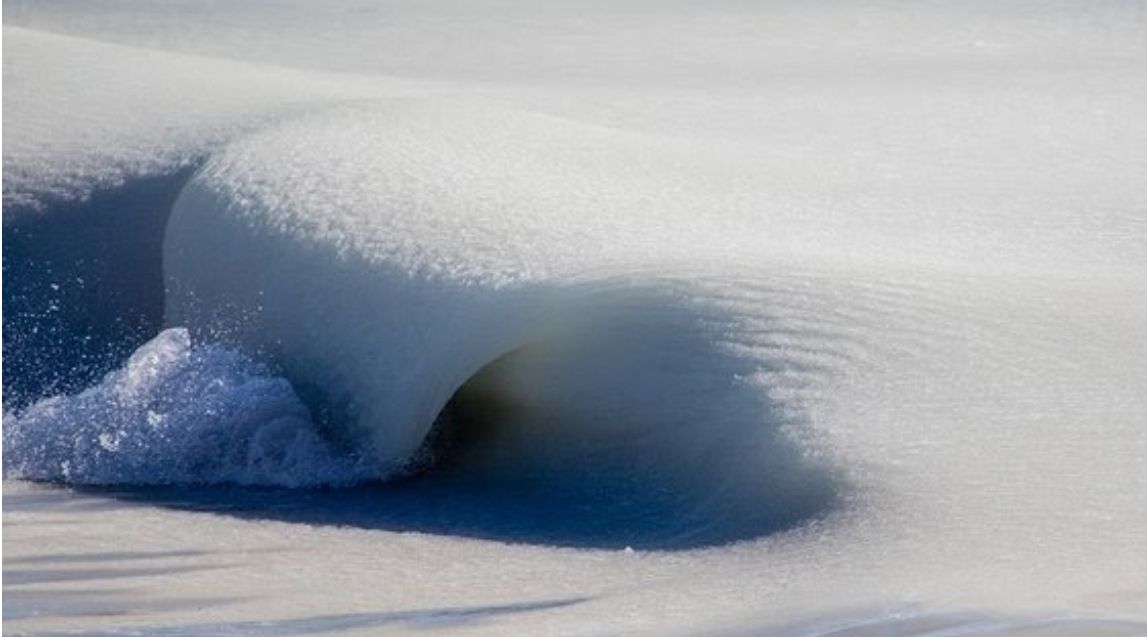
The cold that's gripping the U.S. East Coast has created a magical phenomenon in Nantucket, Massachusetts: Slurpee waves.
The waves, seemingly freezing midbreak, are not just gorgeous — some of them are also surfable, according to photographer and surfer Jonathan Nimerfroh. "You can surf the slush, as they are moving waves," Nimerfroh told Live Science in an email.
Nimerfroh was lucky enough to witness the frozen enchantment.
"With a floundering temperature in the low, single digits this past week, I knew there was a good chance the Slurpee waves would find their way back to Nantucket. Sure enough, on the morning of January 2, I pulled my car up to Nobadeer Beach and there they were," Nimerfroh told Live Science in an email. [In Photos: Tiny Waves Frozen in Their Tracks]
While Nimerfroh's two friends were out surfing just beyond the ice, "hooting and hollering and holding up giant icebergs above their heads in neoprene gloved hands," he was capturing as many photos as he could, he said. The ocean was a nippy 12 degrees Fahrenheit (minus 11 degrees Celsius), which is below the freezing temperature of salt water: 28.4 degrees F (minus 2 degrees C).
At those below-freezing temperatures, ice crystals begin to form in the ocean waves, according to biological oceanographer Carin Ashjian, of the Woods Hole Oceanographic Institution, as reported by Smithsonianmag.com.
According to Nimerfroh, freezing waves like these are not common. "Slurpee waves are the kind of thing you might only be lucky enough to see once, so I count myself as very lucky to have seen them twice," Nimerfroh said, adding that his first encounter with the waves was in February 2015.
Scientists contacted by The New York Times that February also suggested that the frozen waves may be a rare occurrence: Glaciologist Erin Pettit of the University of Alaska Fairbanks told the Times that she'd never seen such waves; the tumultuous water usually tends to break up the ice.
Besides being a rare occurrence, the phenomenon is somewhat fleeting. On Jan. 2, the icy waves melted after about 3 hours, Nimerfroh said.
Hi! I am a robot. I just upvoted you! I found similar content that readers might be interested in:
https://www.livescience.com/61336-slurpee-waves-on-nantucket-beach.html
Downvoting a post can decrease pending rewards and make it less visible. Common reasons:
Submit